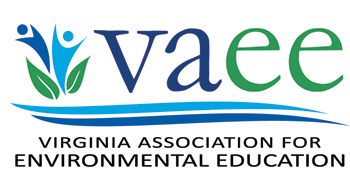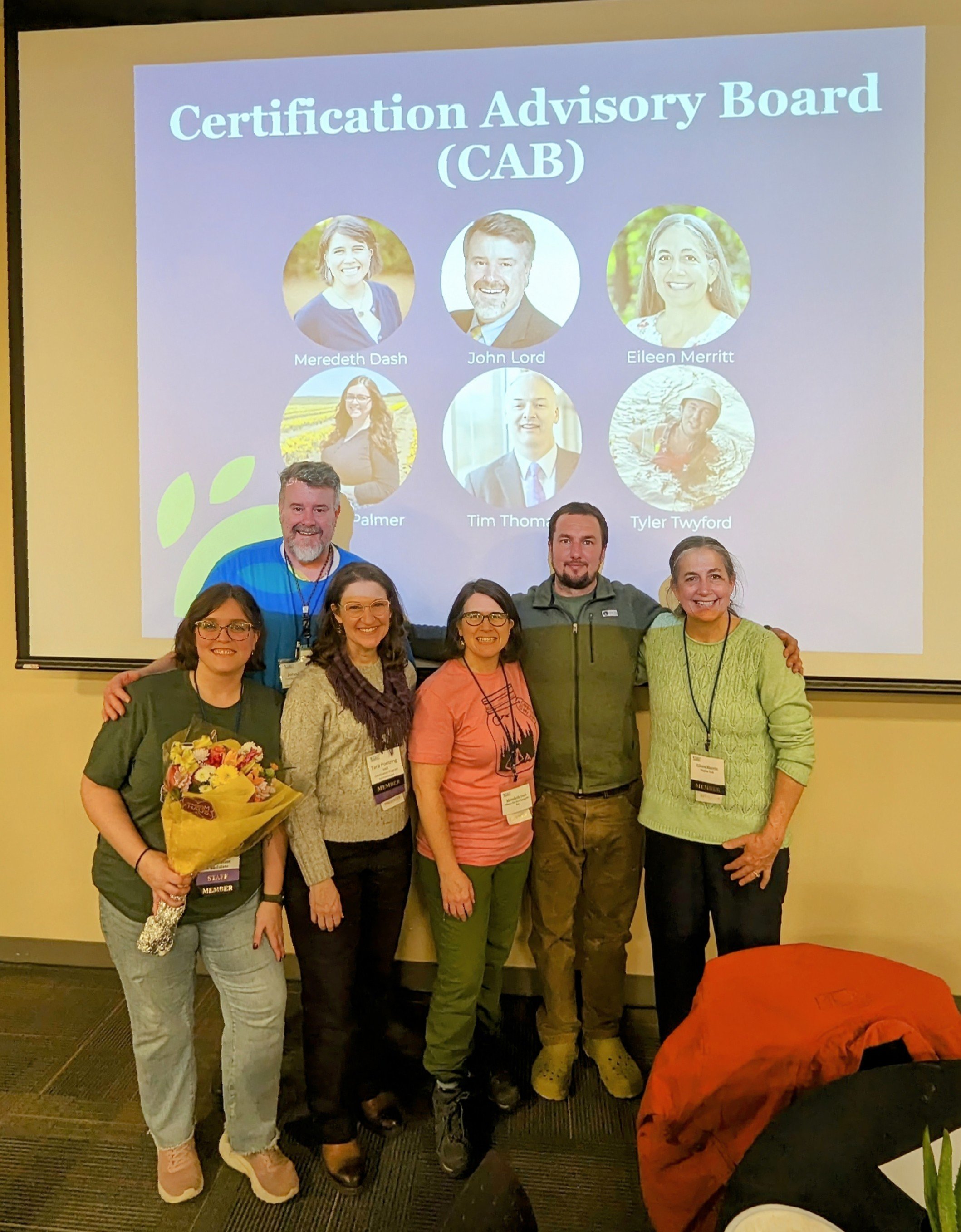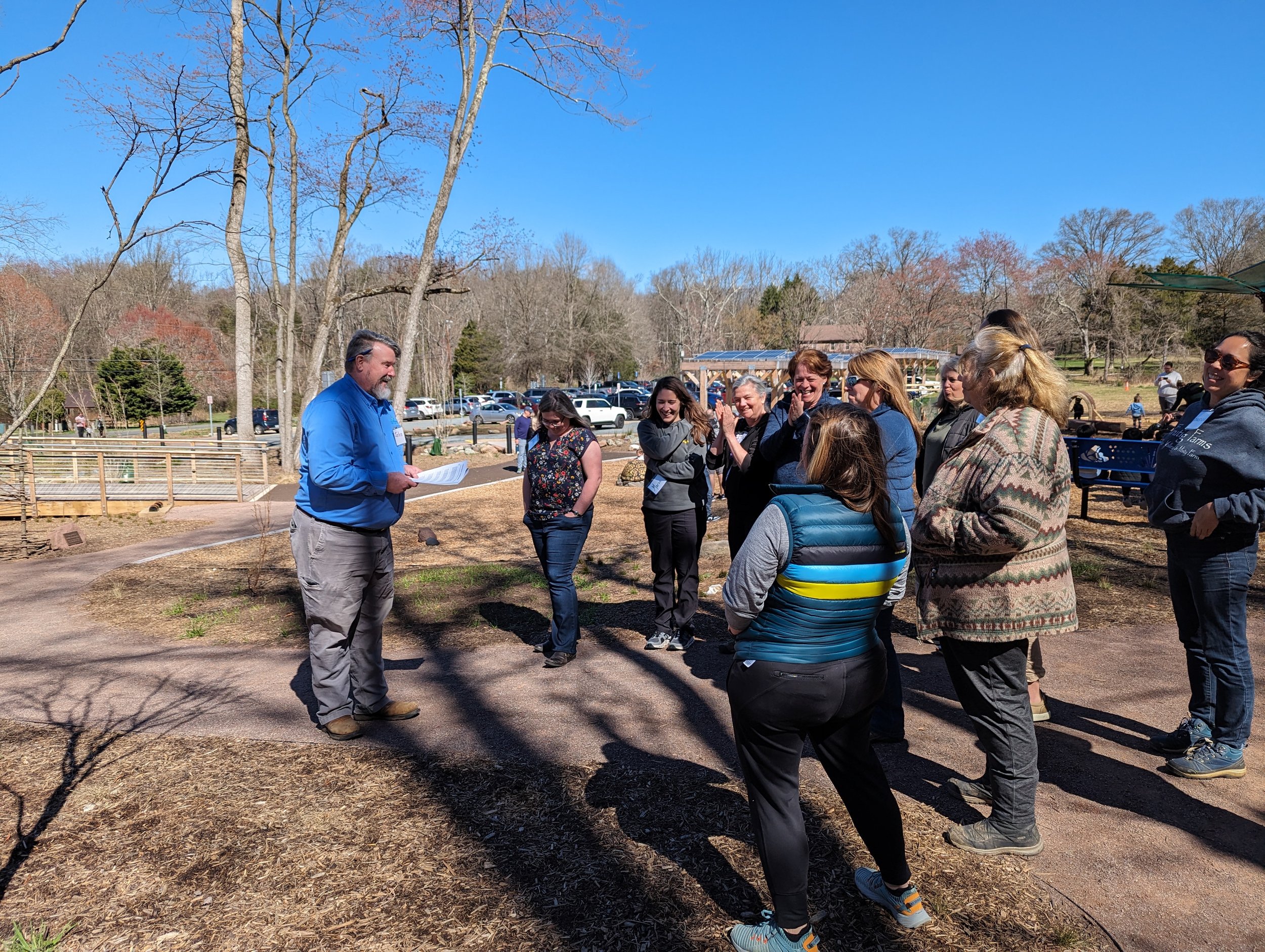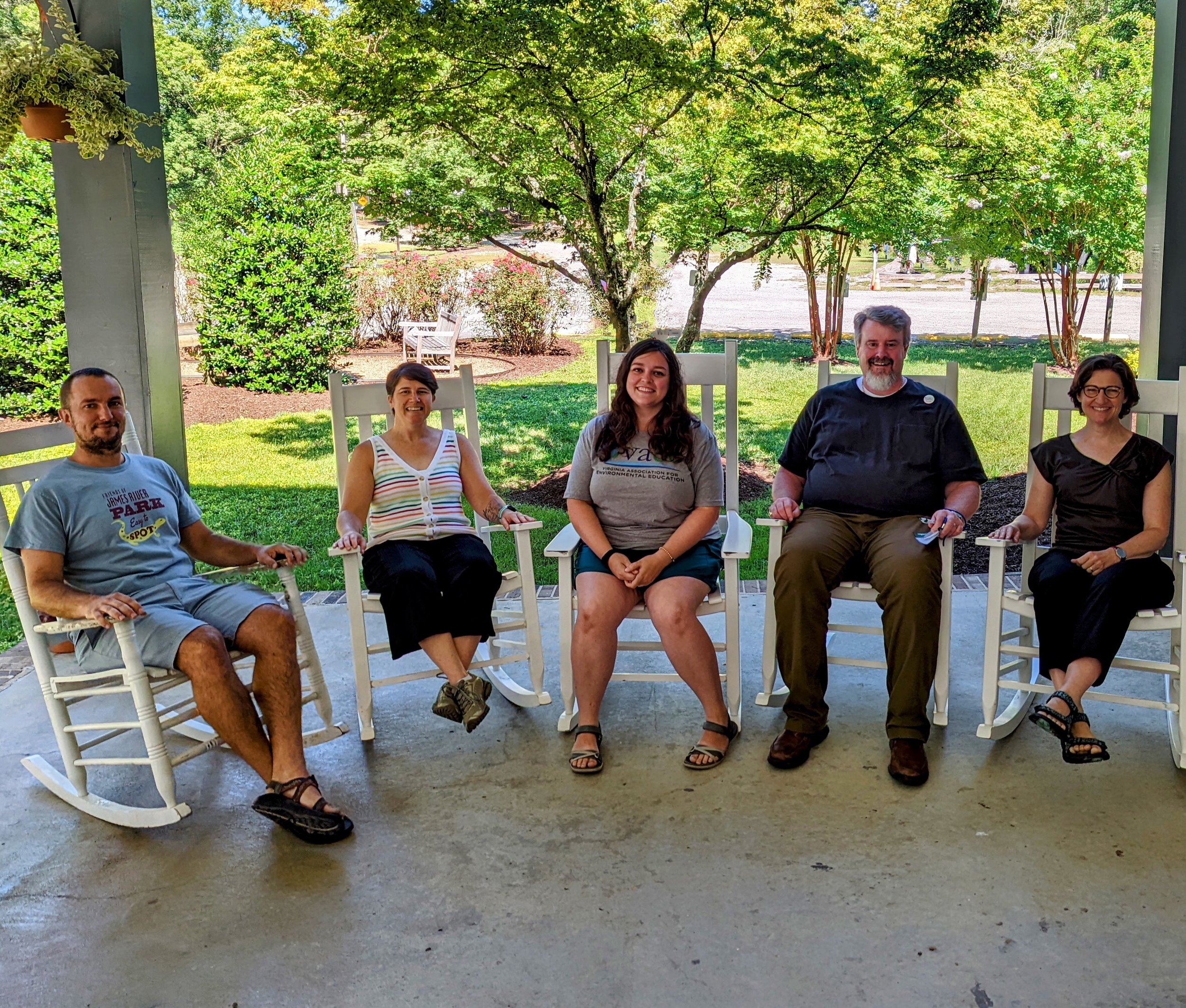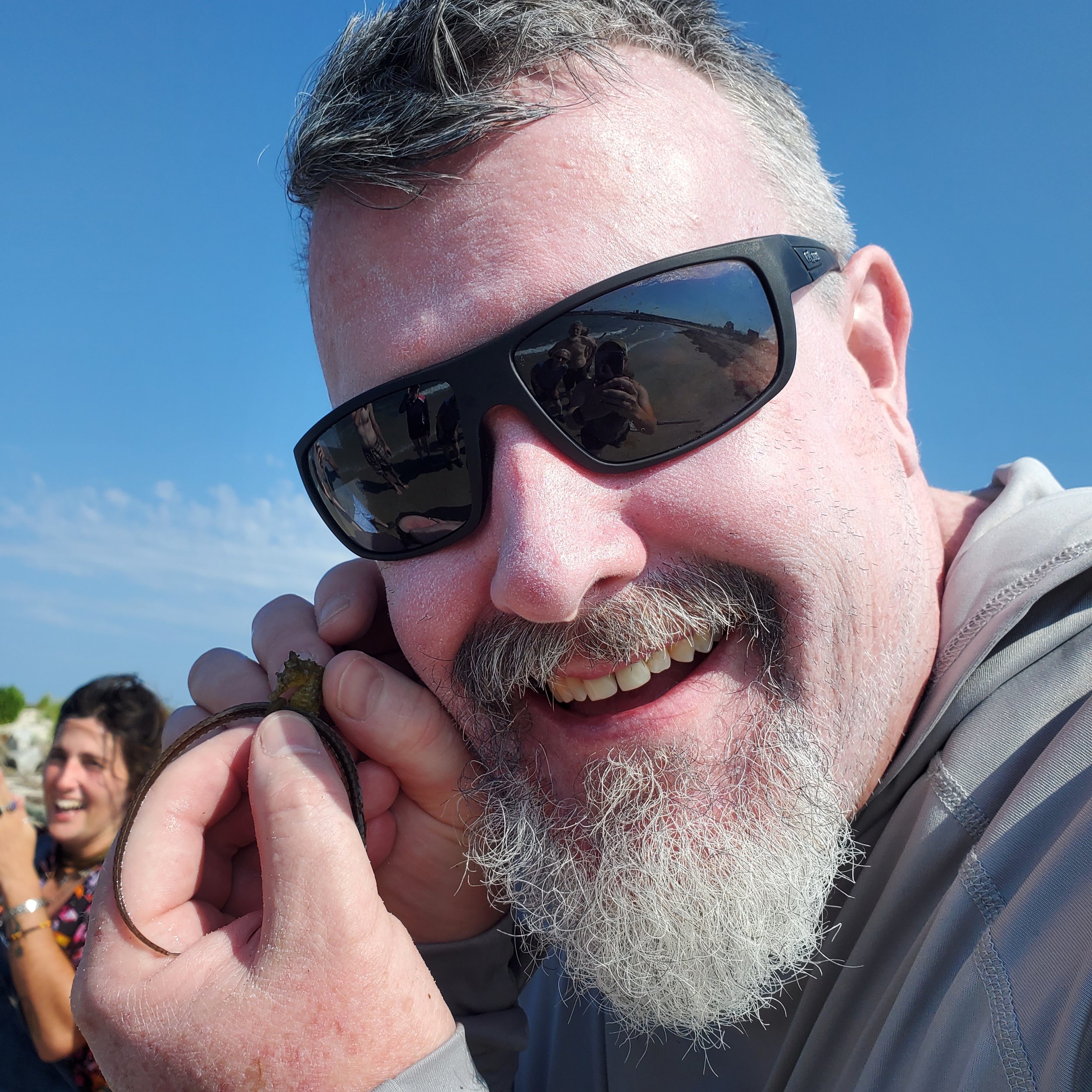John Lord earns EE Certification
Congratulations to John Lord on his recent certification! John can now include Certified Virginia Environmental Educator in his resume, emails signatures, dinner conversation, or even his own personalized bumper sticker (If he chooses to create one). Not only does he now carry an esteemed certification within the Commonwealth, but because the program is now nationally accredited by NAAEE, he can carry this certification anywhere within the United States.
We thought you should get to know John a little better, so we asked him to answer a few questions for us.
Tell us a bit about your work.
My paying job is Energy Management Coordinator for Fairfax County Public Schools. My job can be stated in one sentence: We work to keep from paying unnecessarily high utility bills so that we can spend the money on teaching students instead. The focus of my job is people. People use all the things that require energy. The decisions we make regarding how we use energy make a huge difference. When we reduce energy use and eliminate waste, we not only reduce energy cost, but we also avoid producing greenhouse gas emissions and lower our environmental impact. The program is good for so many different reasons.
John doesn’t stop with his paid work, he also serves in two volunteer positions—one of them for VAEE!
I am the US Director of student chapters for the Association of Energy Engineers (AEE). My involvement with AEE is focused on growing the profession of Energy Management. I can’t emphasize enough how much my affiliation with AEE has helped me to grow professionally. I love to give back and help others to do the same.
This brings me to my second volunteer job; I am the Chair of the Certification Advisory Board with the Virginia Association of Environmental Education (VAEE). Back in late 2017, I recall first hearing about VAEE. By early 2018 the VAEE Board was recruiting for volunteers to join the new Certification Advisory Board. I have been working with VAEE ever since and have seen the dream of a Virginia Environmental Education Certification program come to fruition. I have seen the program become accredited by the North American Association of Environmental Education (NAAEE), and I have seen the program graduate candidates, I have even graduated the program myself. It has been a long ride, but very much worth the time and effort.
What drew you to complete Virginia’s Environmental Education Certification Program?
I think the answer to question 1 tells the tale, but I can certainly connect the dots. As I worked in the field of Energy Management, the story of why one would be in that field began to evolve. At the outset, it was all about saving money. That part of the story hasn’t gone away, Energy Managers are still tasked with saving money. However, the story grew. Whereas initially (I started twenty years ago in 2004) most folks didn’t have a strong focus on the environmental impacts. As time went on, the concept that an Energy Manager is a sustainability professional and is focusing on reducing greenhouse gas emissions as well as lowering environmental impact became more of an area of focus. It has always been true that reducing energy use has positive environmental consequences, most people just didn’t pay attention to that aspect.
As I mentioned, I work with people. I am an educator first and foremost. In fact, my program at FCPS is called the Energy Education program and my team members are called Energy Education Specialists. We do work with equipment and are knowledgeable about how mechanical systems work, but our primary area of attention has always been educating people and changing the culture. Before I became an energy manager, I taught Spanish for 10 years in a public school in Virginia. I believe in education and know that long-term change and improvement is almost always based on a foundation of education. Any thing worth doing requires someone to know as much as they can to do that thing well. Whether it is speaking another language, knowing how to eliminate energy waste and choose conservation and efficiency first, or to educate others about topics important to our shared environment, we must have a solid background of knowledge and expertise.
My goal was to become more knowledgeable, grow as a professional, and become a Certified Environmental Educator. Joining the professional association and securing the premier certification within that profession are tools that help me to be better at what I do. In a field like education, when I am better, my results (that is, the knowledge I pass along to my students or program participants) are better. Taking the steps required to make a solid foundation is important to that success.
Tell us about your Community Capstone Project.
So, this question is sort of the culmination of questions 1 & 2. I hope that anyone who reads the answers in order will see the logical progression and when I reveal what my capstone project was, they will know why it was so perfect for me, and I hope it will serve the wider Environmental Education community well for many years to come. My capstone project was to work with a small team (The various members of the Virginia Association for Environmental Education’s Certification Advisory Board) to develop an Environmental Education Certification program that balanced academic rigor with accessibility. In addition, I wanted to continue to work with that team to see the EE Certification Accredited by NAAEE. Finally, I wanted to see certification candidates graduate from the program and I wanted to be one of those graduates. I am happy to report that all aspects of my Community Capstone Project are complete.
The project certainly took longer than I expected. The CAB team members changed over time. The program requirements and structure were modified countless times. The alignment process with criteria from NAAEE required multiple iterations to be complete. Creating what we originally referred to as “criteria seven” which evolved into integrating Environmental Justice, Equity, Diversity, and Inclusion into all aspects of the program was no easy task and required all of the program’s developers to embark on (or continue) a journey of understanding that continues to this day. Many community members working together have led to success. I want to thank everyone who worked together over the years to make it happen – perhaps most especially the CAB folks who were serving when the program’s first iteration was complete: Meredeth Dash, Ashley Palmer, Eileen Merritt, Tim Thomas, Tyler Twyford, Bruce Young, and Tara Poelzing who formerly served on the CAB but serves as Certification Administrator now. We needed each other to complete this project.
My final piece of the Community Capstone Project will ultimately be to hand it off to the next group of caretakers who will need to continue to nourish and grow the program as it moves forward. It has been a great privilege, honor, and pleasure to serve the Environmental Education Community by helping to develop a Professional Certification Program that is worthy of everyone’s time and effort as well as their investment in their own professional growth. I know the part I played was just one small part in a much bigger picture, but I am so glad my part was available and that I took the chance to undertake this adventure.
